[Part 16]
[Benton Bradberry’s 2012 book, “The Myth of German Villainy” is a superb, must-read, revisionist look at how the German people have been systematically, relentlessly and most importantly, unjustly vilified as the arch criminal of the 20th century. Bradberry sets out, cooly and calmly as befits a former US-Navy officer and pilot, to show why and how the German people have been falsely accused of massive crimes and that their chief accuser and tormenter, organized jewry is in fact the real party guilty of monstrous crimes against Germans and the rest of the world.
In Part 16, the annexation of the German speaking area of Czechoslavakia, the Sudetenland, by Germany in 1938 is discussed. The British Prime Minister Neville Chamberlain saw it a justified return of formerly German territory back to Austria/Germany despite the opposition from the British war mongers Winston Churchill, Anthony Eden, Duff Cooper, and Lord Halifax.
Churchill was determined that Britain would eventually go to war with Germany and his fellow alarmists worked feverishly to bring it about.
“Was he deliberately channeling British power towards the service of the international Jews who were paying him through “The Focus,” or was he deluding himself that he was serving England?“
— KATANA.]
NOTE: The author has very generously given me permission to reproduce the material here — KATANA.
The book can be bought at Amazon here: The Myth of German Villainy
The Myth of
German Villainy
by
Benton L. Bradberry
Contents
[Clicking on a link in the Contents here will take you to that Part, in a separate post]
[Part 01]
Chapter 1 – The Myth of Germany as an Evil Nation
Germany’s Positive Image Changes Overnight
[Part 02]
Chapter 2 – Aftermath of the War in Germany
The Versailles Treaty
Effect of the Treaty on the German Economy
Was the War Guilt Clause Fair?
Did Germany Really Start the War?
[Part 03]
Chapter 3 – The Jewish Factor in the War
Jews at the Paris Peace Conference
Jews in Britain
[Part 04]
Chapter 4 – The Russian Revolution of 1917
Bolsheviks Take Control
Jews and the Russian Revolution
Origin of East European Jews
Reason for the Russian Pogroms Against the Jews
Jews Leave Russia for America
Financing the 1917 Revolution
Jews in the Government of Bolshevik Russia
[Part 05]
Chapter 5 – The Red Terror
Creation of the Gulag
Bolsheviks Kill the Czar
Jews as a Hostile Elite
The Ukrainian Famine (Holodomor)
[Part 06]
Chapter 6 – The Bolshevik Revolution Spreads Throughout Europe
Jews in the Hungarian Revolution
Miklos Horthy Saves Hungary
Jews in the German Revolution
The Spartacist Uprising in Berlin
Jewish Bolsheviks Attempt to Take Italy
Jewish Bolsheviks Attempt to Take Spain — The Spanish Civil War
Czechoslovakia in Danger of Communist Takeover
The Comintern’s Aim? World Domination!
[Part 07]
Chapter 7 – The Nation of Israel
History of the Expulsion of Jews
[Part 08]
Chapter 8 – Jews in Weimar Germany
Jews Undermine German Culture
[Part 09]
Chapter 9 – Hitler & National Socialists Rise to Power
The 25 Points of the National Socialist Party
[Part 10]
Chapter 10 – National Socialism vs. Communism
National Socialism
Jews Plan Marxist Utopia
[Part 11]
Chapter 11 – Jews Declare War on Nazi Germany
Text of Untermeyer’s Speech in New York
The Jewish Persecution Myth
Effect of Boycott on the German Economy
Jewish Exaggerations are Contradicted by Many
[Part 12]
Chapter 12 – The Nazis and the Zionists Actually Work Together for Jewish Emigration out of Germany
The Nuremberg Laws – 1935
The Zionist Movement
[Part 13]
Chapter 13 – Life in Germany Under Hitler
Night of the Long Knives
1934 Annual Nazi Rally at Nuremberg
Hitler Revives the German Economy
Hitler Becomes the Most Popular Leader in the World
[Part 14]
Chapter 14 – Hitler Begins Reclamation of German Territory
Chapter 15 – The 1936 Olympics
[Part 15]
Chapter 16 – “Anschluss”. The Unification of Austria and Germany
Austrian Economy Revived
Austria’s Jews
[Part 16]
Chapter 17 – Germany Annexes the Sudetenland
[Part 17]
Chapter 18 – War with Poland
The Polish Problem
Hitler’s Proposal to Poland
Kristallnacht
German-Polish Talks Continue
Jews Influence both Roosevelt and Churchill
British and American Political Leaders Under Jewish Influence
Roosevelt’s Contribution to Hostilities
Lord Halifax Beats the War Drums
Germany Occupies Bohemia and Moravia
Roosevelt Pushes for War
Anti-war Movement Becomes Active
Poles Murder German Nationals Within the Corridor
[Part 18]
Chapter 19 – The Phony War
Russo-Finnish War
The Norway/Denmark Campaign
German Invasion of Denmark and Norway
Churchill Takes Chamberlain’s Place as Prime Minister
[Part 19]
Chapter 20 – Germany invades France Through the Low Countries
The Phony War Ends.
Churchill the War Lover
The Fall of France
Hitler Makes Peace Offer to Britain
[Part 20]
Chapter 21 – The Allied Goal? Destruction of Germany!
[Part 21]
Chapter 22 – Germany as Victim
Rape and Slaughter
Jewish Vengeance
The Jewish Brigade
[Part 22]
Chapter 23 – Winners and Losers
Chapter 17
Germany Annexes the Sudetenland
Czechoslovakia was a creature of the peace treaties following World War One; a new state cobbled together out of some of the remnants of the now defunct Austro-Hungarian Empire. The population of this new state was made up of 7,450,000 Czechs, 2,300,000 Slovaks, 720,000 Magyars (Hungarians), 560,000 Ruthenes, 300,000 Jews, 100,000 Poles …, and 3,200,000 Germans who comprised nearly a fourth of the country’s entire population.
Czechoslovakia was the antithesis of Woodrow Wilson’s concept of “self determination for all peoples,” which, ideally, would have manifested itself in ethnically homogeneous nation states. Combining all of these disparate nationalities into a single state had instability and conflict built into it from the outset. (One wonders why “multiculturalism” is such a popular idea today, since it has proven again and again to be unworkable.)
The light brown area surrounding Bohemia and Moravia was the German area of Czechoslovakia, known as the Sudetenland.
A prosperous Sudeten German farm
The German population of Czechoslovakia was clustered mainly on its western border adjacent to Germany in a region known as the Sudetenland. These Sudeten Germans or Sudetendeutsche had lived in the region for centuries, and had become very prosperous under the Austro/Hungarian Empire. These industrious, meticulous Germans developed a well ordered society over time, with prosperous farms throughout the region and a highly productive mining and timbering industry. The Sudetenland also became highly industrialized during the nineteenth century and early twentieth century, with huge chemical works, and lignite mines, as well as numerous textile, china, and glass factories. The Sudetenland was the wealthiest and most productive part of the old Austro-Hungarian Empire, and the Sudeten Germans were by far the most successful and wealthy ethnic group. This remained true in the new state of Czechoslovakia. Within the Sudetenland, 39 percent of the population was employed in industry with only 31% in agriculture, compared to the rest of the country, where a majority were rural farmers. All the big factories were owned by Germans and controlled by German owned banks.
This region had been ruled for centuries by the German Hapsburgs, so the ruling nationality had always been German and the official language had always been German. Though the Czechs and the Germans had lived together for centuries in this region, formerly known as Bohemia, and Moravia, they had developed separate cultural, educational, political and economic institutions which kept them isolated from each other. The two groups did not mix well, and the region had seen constant strife between the Czechs and the Germans for a hundred years or more. The new artificial country of Czechoslovakia, created by the Treaty of St. Germain in 1919, was now ruled by the majority Czechs, which essentially reduced the 3.2 million Germans to being ruled by their former subjects. The Czechs took great satisfaction in lording it over their former German betters, and conditions for the Germans became very harsh very quickly. During 1919, some 600,000 Germans were uprooted and forced to leave their settlements of centuries, to make way for Czechs who were being moved in by the new government.
[Add. image] Austrians receive the Peace Terms at St Germain Chateau. Dr Carl Renner making his impassioned reply to the Allied Delegates after receiving the Peace Terms, 20 July 1919. Monsieur Clemenceau and President Wilson are sitting at the table in the background.
The Sudeten Germans never wanted to be separated from Austria and included in this newly created country in the first place. Now, their worst fears were becoming a reality as they became a suppressed minority in essentially a foreign country. Claiming the right of self-determination according to number ten of President Wilson’s Fourteen Points, they demanded that their homeland be re-combined with Austria, which was, of course, also ethnic German. The Czech army (now the Czechoslovakian army) was already moving in to occupy the Sudeten region with large numbers of Czech speaking troops. This region had been solidly ethnic German for centuries, and the sudden Czech occupation produced an explosive situation.
On March 4, 1919, almost the entire population of Sudeten Germans staged a peaceful demonstration against the Czech occupation and for self-determination. This demonstration was accompanied by a one day general strike. The Czech army quickly moved in and brutally dispersed the demonstration, killing 54 Germans and wounding 84 others. The Germans were shocked by the brutality of the Czechs, but they were law abiding, so they ended the strike and returned to work, but continued to harbor a seething, smoldering resentment against the Czechs which threatened at any time to explode into violence. These brutal killings of Germans by the Czechs only intensified nationalist and separatist sentiments among the Sudeten Germans. They wanted to separate themselves from Czechoslovakia and re-join Austria or to be annexed by Germany; or barring that, to obtain as much autonomy for themselves as possible. But the Treaty of St. Germain of September 10, 1919 specifically forbade union of the Sudetenland with either Austria or Germany and reconfirmed that it would remain a part of Czechoslovakia. If this decision defies common sense, it must be born in mind that the very purpose of these treaties was to break Germany apart, and to prevent the Germans from re-combining into a European super power. Therefore, the Sudeten Germans would not be allowed to join either Austria or Germany, but would be forced to remain subjects of Czechoslovakia against their will.
To make matters worse, a constitution for the new republic of Czechoslovakia was drawn up in 1920 without Sudeten German participation. The new constitution included provisions which were extremely prejudicial to Sudeten German interests, such as measures to redistribute German wealth to its various other ethnic groups. Land was confiscated from the wealthy German farmers and redistributed to other ethnic groups, mainly Czechs. The government also confiscated one fifth of all paper money to pay for other redistributive schemes, and since the Germans were by far the wealthiest, this fell hardest on them. Policies intended to protect the security of the Czechoslovak state and the rights of Czechs also worked to the disadvantage of Germans, which created local hostilities. Border forestland, considered the most ancient Sudeten German national territory, was expropriated for security reasons. The Czechoslovak government settled Czechs in areas of German concentration in an effort to moderate German nationalism, but the policy produced just the opposite effect. Czech schools were built in German districts for the same reason. Sudeten Germans, in possession of a large number of subsidized local theaters, were required to put these at the disposal of the Czech minority one night a week, which produced another cause for hostility. All efforts were made to dissolve the cohesive German society and to promote their assimilation into the other ethnic groups. All of these measures only further alienated the German population from the rest of the country and increased friction and strife between the Sudeten Germans and the Czechs.
When the Depression hit Europe in 1931, it hit the Sudeten Germans particularly hard, as they depended more than the rest of Czechoslovakia on international trade, especially with Germany. During the depression, the Czechoslovakian government took measures to protect its Czech citizens at the expense of the Sudeten Germans. As a result, the unemployment rate among the industrialized Sudeten Germans was five times that of the rest of Czechoslovakia. Tension between the two groups increased. Fighting broke out. The Czech army and Czech police sided with the Czechs and numerous atrocities were committed against the German population.
In 1931 the Sudeten German Peoples Party was created, led by Konrad Henlein, with the central objective of Sudetenland annexation with Germany. Henlein established communications with the Nazi Party in Germany and sought their support for annexation. After becoming Chancellor in 1933, Hitler openly called for annexation of the Sudetenland and eventually began providing financial support for the Sudeten German Peoples Party to help them towards that goal.
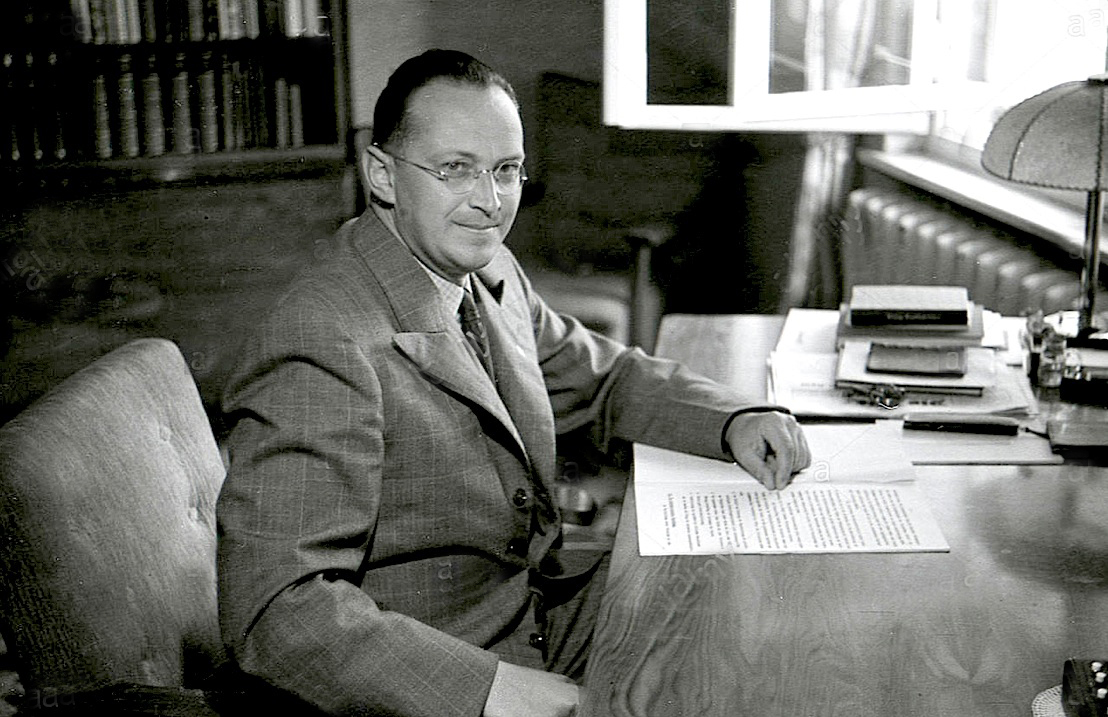 [Add. image] Konrad Henlein at his desk. Henlein was the leading Sudeten German politician in Czechoslovakia.
[Add. image] Konrad Henlein at his desk. Henlein was the leading Sudeten German politician in Czechoslovakia.
Though Henlein’s demand had almost unanimous Sudeten German support, it was vigorously opposed by the Czech government. If the Germans were allowed to secede from the Czech state, what about all the other nationalities? The very idea posed an existential threat to the state of Czechoslovakia. Moreover, the Sudetenland held some of Czechoslovakia’s richest resources, large deposits of coal in particular, and also its most productive industries. The Czech government was ready to fight, if it came to that, in order to prevent the loss of this wealthy region.
The Czechoslovakian army was one of the most powerful, well trained and best equipped in Europe at the time and could have withstood a German invasion attempt without outside assistance. The German army had not yet rebuilt itself. Nevertheless, President Benes entered into alliances with France and the Soviet Union as additional insurance, but the Germans saw this as an attempt at encirclement of their country. Even though the Soviet Union had entered the alliance, they asserted that they would not go to war against Germany unless France did also, and France was unprepared for war, so the alliances were essentially worthless.
In 1938 both the British and the French people were very opposed to war, though a belligerent faction among British leaders existed who did want war, including Winston Churchill, Anthony Eden, Duff Cooper, and Lord Halifax. This group called for war against Germany in the event of any attempt to annex the Sudetenland. Instead of viewing Hitler’s annexation of German peoples into the Reich as a limited goal of pan-Germanism, as was the case, they accused Hitler of wanting to create a super state in order to dominate the world, yet, there was no evidence that that is what Hitler wanted to do. Chamberlain, who was not a part of this group of British war mongers, happened to believe that the Sudeten Germans’ grievances were well founded and believed that Hitler’s intentions in the matter were limited. Both Britain and France, therefore, advised Czechoslovakia to give the Sudeten Germans the autonomy they sought, and then let them decide what they wanted to do. Czech President Benes, however, strongly resisted this proposal.
[Add. image] Czech President Edvard Benes with Czech troops in May 1938.
As the political situation worsened, security in the Sudetenland deteriorated. Armed clashes began to occur between bands of Sudeten Germans and the police and border forces. In a few instances, the Czech army was called out to pacify the situation. Leaders in Germany expressed their concern for their fellow Germans in the Sudetenland. Henlein and his Sudeten German Party then presented the Prague government with an eight point demand. Henlein demanded complete autonomy, ideologically as well as politically, and reparations for damages caused by the “injustices inflicted since 1918” on Sudeten Germans. Despite pressure from London and Paris to accept it, the Prague government rejected these demands out of hand. When fighting broke out in the Sudeten area and rumors of German troop movements across the border were passed around (which turned out to be untrue), the Czechoslovak army mobilized on May 20, 1918. Mobilization at that time was universally seen as a provocation, and war between Czechoslovakia and Germany seemed certain. A war between the two states was even egged on by Winston Churchill and his group.
Prime Minister Chamberlain stepped in and offered to mediate to try to settle the matter peacefully. He sent Vicount Runciman in to work things out between Germany and Czechoslovakia short of war. Runciman was unable to bring the two sides together in any kind of an agreement, however, so he returned to England. Upon his return to England, he presented the following report to the British government which was very sympathetic to the Sudeten Germans:
“Czech officials and Czech police, speaking little or no German, were appointed in large numbers to purely German districts; Czech agricultural colonists were encouraged to settle on land confiscated under the Land Reform in the middle of German populations; for the children of these Czech invaders Czech schools were built on a large scale; there is a very general belief that Czech firms were favoured as against German firms in the allocation of State contracts and that the State provided work and relief for Czechs more readily than for Germans. I believe these complaints to be in the main justified. Even as late as the time of my Mission, I could find no readiness on the part of the Czechoslovak Government to remedy them on anything like an adequate scale … the feeling among the Sudeten Germans until about three or four years ago was one of hopelessness. But the rise of Nazi Germany gave them new hope. I regard their turning for help towards their kinsmen and their eventual desire to join the Reich as a natural development in the circumstances.”
Czechoslovakian President Benes proposed a compromise plan, but it was too little, too late, and Henlein turned it down. He then instructed the Sudeten Germans to prepare for self defense in case of attack. On September 15, 1938 Henlein flew to Germany and met with Hitler. He then issued a proclamation demanding Sudetenland annexation with Germany. Riots and clashes with police broke out in the Sudetenland which were brutally put down by the Czech army. German newsreels showed evidence of widespread atrocities against Sudeten Germans. Hitler threatened to send in German troops to protect them.
Konrad Henlein, leader of the Sudeten German People’s Party, with Adolf Hitler in Germany.
Chamberlain went to Berchtesgaden on September 15 and met with Hitler. During the meeting, Hitler demanded the swift annexation of the Sudetenland by Germany or he threatened to invade in order to protect the Sudeten Germans, whom he claimed were being slaughtered by the Czechs. There was plenty of evidence from outside sources that what Hitler claimed was indeed occurring. Both the British and French governments accepted Hitler’s argument and supported his demand for annexation.
Predictably, however, the war mongering element among the British leadership opposed the settlement. Winston Churchill immediately issued a statement to the press denouncing Chamberlain’s policy:
“The partition of Czechoslovakia under pressure from England and France amounts to the complete surrender of the Western democracies to the Nazi threat of force. Such a collapse will bring peace or security neither to England nor to France. On the contrary, it will place these two nations in an ever weaker and more dangerous situation. The mere neutralization of Czechoslovakia means the liberation of 25 German divisions, which will threaten the Western front; in addition to which it will open up for the triumphant Nazis the road to the Black Sea.”
“It is not Czechoslovakia alone which is menaced, but also the freedom and the democracy of all nations. The belief that security can be obtained by throwing a small State to the wolves is a fatal delusion. The war potential of Germany will increase in a short time more rapidly than it will be possible for France and Great Britain to complete the measures necessary for their defense.”
But Hitler was not satisfied to simply annex the Sudetenland. He wanted to solve Czechoslovakia’s ethnic instability problem once and for all, and insisted that claims of Poland and Hungary for the return of their ethnic minorities from Czechoslovakia also be satisfied.
The Times of London editorialized that Hitler was right and supported the annexation of the Sudetenland by Germany. The editorial also supported the demands of Hungary and Poland.
Churchill, of course, took issue with this editorial of The Times. “In this single paragraph,” Churchill wrote:
“The Times gave support to the most extreme of Nazi demands, the complete cession of the Sudetenland, a demand which, if met, would have condemned Czechoslovakia to disintegration, and placed a majority of the Sudeten Germans under the grim rigors of Nazi rule.”
Churchill ignored the fact that the overwhelming majority of Sudeten Germans demanded annexation with Germany. That same day, the Foreign Office publicly disassociated itself from Churchill.
[Add. image] The Munich Agreement is signed on September 29, 1938. From left to right: Chamberlain, Daladier, Hitler, Mussolini, and Ciano pictured before signing the Munich Agreement, which gave the Sudetenland to Germany.
Chamberlain requested a conference with Hitler which would also include France and Italy to make a final decision on the matter. On September 29, 1938, Hitler met at Munich with the heads of government of France, Italy, and Britain. The Czechoslovakian government was not invited. From this meeting, the Munich Agreement was signed by all present, agreeing to all of Hitler’s demands. The Agreement stipulated that the Sudetenland be ceded to Germany, effective immediately. By this act, 3.25 million Sudeten Germans then became citizens of the Reich, along with approximately 38 percent of the territory of Bohemia and Moravia. Hungary received 11,882 square kilometers of Southern Slovakia and southern Ruthenia along with their Hungarian populations, and Poland received Tesin and two minor border areas in northern Slovakia along with their Polish populations. This was accomplished peacefully, without firing a shot. British historian A.J.P. Taylor wrote:
“The Munich Pact…was a triumph for all that was best and most enlightened in British life.”
Hitler greets Chamberlain at the Munich conference of September 29, 1938
Chamberlain flew back to London to a hero’s welcome. As he got off the plane, he held aloft an agreement signed by Adolf Hitler which stated the German leader’s desire never to go to war with Britain again.
Chamberlain proclaimed that he had secured “peace for our time.” As the jubilant crowd applauded and cheered, Chamberlain expressed his desire to find a peaceful solution to the Fuhrer’s wish to create an enlarged German homeland in Europe to include all Germans. He then read a further passage in the Agreement in which Hitler stated:
“We are determined to continue our efforts to remove possible sources of difference and thus to contribute to assure the peace of Europe.”
British Prime Minister Neville Chamberlain proclaims “Peace for our time,” after the Munich Agreement permitting the German annexation of the Sudetenland.
Winston Churchill, quite expectedly, took the opposite view. He made a speech in the House of Commons in which he stated that the British Government, in approving the Munich Agreement, had “sustained a total and unmitigated defeat,” and that “a disaster of the first magnitude has befallen Great Britain and France.” Churchill had for some time called for a “Grand Alliance” between Britain, France, the United States, and the Soviet Union to “stop Hitler.”
[Add. image] Churchill with a Thompson submachine gun. Taken during his visit to the coastal defense positions near Hartlepool on 31 July, 1940.
But Churchill was a war monger of the first rank, and his statements about Germany were often inaccurate or gross exaggerations, and intended only to inflame public opinion against Germany. If the cause of World War Two could be pinned on a single person, it should be pinned on him; and if not on him alone, then on him and Roosevelt. He was also an opportunist. Churchill had been an ardent anti-Bolshevist from the start and blamed the Russian Revolution and all that came after it on the Jews. But then, when it suited his purposes, he jumped on the Zionist bandwagon, stating that Zionism ( which advocated the creation of a Jewish homeland in Palestine) would deflect European Jews away from social revolution to partnership with European imperialism in the Arab world.
In 1936, Churchill became associated with the informal London Jewish pressure group known as “The Focus,” (of which, more in the following chapter). The purpose of The Focus was to “open the eyes of the British public to the one great menace, Nazi Germany.” In reality, Germany was never a threat to Britain, and Hitler had done all he could to win Britain’s friendship. The Focus became Britain’s main contributor to the international Jewish propaganda campaign against Nazi Germany, and Churchill became its Gentile front man. Churchill was useful to The Focus in its campaign to destroy Hitler and the Nazis, and The Focus was useful to Churchill in bringing him back to power after years “in the wilderness,” as he put it. The Focus was lavishly funded by these wealthy British Jews and Churchill, as its front man, lived a lavish life as a result. (Churchill also received an excessively large payment from the Czechoslovakian government, which cast doubt on the genuineness of his opposition to the annexation of the Sudetenland by Germany.)
[Add. image] Winston Churchill speaking at a munitions factory in Ponders End, 1916.
In his role as Gentile front man for the Focus, Churchill began berating the British government for its “blindness to the Nazi threat,” and he especially went after Prime Minister Neville Chamberlain for his efforts to maintain the peace. In his articles and speeches, Churchill greatly exaggerated the extent of German rearmament and distorted the rearmament’s purpose by harping on German production of heavy bombers. In fact, Germany had never focused on heavy bombers, but Churchill used this lie to support his contention that Germany intended to eventually attack Britain. Hitler wanted only peace and friendship with Britain, not war, and said so repeatedly. Moreover, Hitler had made clear that his goal was to reconstitute the German state which had been dismembered by the Versailles Treaty. That plan was no secret to anyone, including Churchill. But Churchill and his fellow alarmists treated each of Hitler’s actions to fulfill that plan as a new and unexpected act of aggression, and further proof of his intent to conquer Europe. Churchill was determined that Britain would eventually go to war with Germany for his own reasons.
While others worked feverishly to avoid war, Churchill and his fellow alarmists worked feverishly to bring it about. Was he deliberately channeling British power towards the service of the international Jews who were paying him through “The Focus,” or was he deluding himself that he was serving England? That question will probably never be answered.
The British publicist, F.S. Oliver, said this about Winston Churchill’s character:
“From his youth up, Mr. Churchill has loved with all his heart, with all his mind, with all his soul, and with all his strength, three things: war, politics and himself. He has loved war for its dangers, he loves politics for the same reason, and himself he has always loved for the knowledge that his mind is dangerous — dangerous to his enemies, dangerous to his friends, dangerous to himself. I can think of no man I have ever met who would so quickly and so bitterly eat his heart out in Paradise.”
Germany Annexes the Sudetenland
German troops enthusiastically welcomed into Sudetenland, October 1, 1938
On October 1, 1938, the German army marched unopposed into the Sudetenland where they were received with jubilation. Czechoslovakia was an artificial and unworkable state created by intellectuals and supported by the victors of WWI. In reality, it had no chance of succeeding, and its demise was no tragedy. The remainder of the country, left over after the Munich Agreement, began immediately to fall apart along ethnic lines. On March 14, 1939, Slovakia declared its independence, followed soon after by Carpatho-Ukraine (Ruthenia). After these areas were gone, all that remained of the former Czechoslovakia were parts of Bohemia and Moravia. The situation was an open invitation for a Communist takeover.
The overwhelming threat to Western Christian Civilization at that time was Communist revolution instigated and supported by the Soviet Union. The Jewish Bolsheviks who controlled the Soviet Union had set up the Communist International (Comintern) for the specific purpose of taking control of all of Europe. They tried taking over Germany in the revolution of 1918 but were defeated by the Freikorps. They had even succeeded for a time in establishing the Soviet Socialist Republic of Bavaria, until also brought down by the Freikorps. They took Hungary briefly in 1919 but were thrown back by forces under Nicholas Horthy. They tried taking Italy in the 1920s but were defeated and driven out by Mussolini. They started a civil war in Spain in 1936 and nearly succeeded in creating a Soviet style Communist dictatorship in that country, but with the help of Mussolini and Hitler, the devout Catholic General Francisco Franco, after three years of bloody war, defeated the Communists and drove them out of Spain. Soviet Russia stood ready with a watchful eye to create and support Communist revolution in any European country that seemed vulnerable.
Czechoslovakia’s capital city, Prague, had a large Jewish population who had built an active Communist revolutionary party, ready at any time to act as the Soviet Union’s fifth column to take control of what remained of the former Czechoslovakia. Hitler made it known that he would not allow this to happen. The new president of Czechoslovakia, Emil Hacha, was himself concerned about this, and wanted to meet with Hitler. Hitler invited him to Berlin for talks. When he arrived at the train station with his daughter, he was met by Foreign Minister von Ribbentrop, who had a bouquet of flowers for the daughter. Hitler had also sent a box of chocolates. During the late night meeting, Hitler harangued Hacha relentlessly, until he finally signed an agreement making his country a protectorate of Germany.
[Add. Image] Emil Hacha meeting with Adolf Hitler.
When Hitler came out of the meeting, he was ecstatic. He told his two middle-aged secretaries; “Children, quickly, give me a kiss! Quickly!” The ladies kissed him on both cheeks. Hitler said:
“It is the greatest triumph of my life! I shall enter history as the greatest German of them all!”
Hitler had every reason to be satisfied with himself. So far, he had brought into Germany the Saar, Austria and the Sudetenland, and now he had made Bohemia and Moravia a protectorate. He had also essentially nullified the Versailles Treaty; and he had done it all through diplomacy, without firing a shot.
That same day, March 15, the German army moved in, meeting no resistance. On March 16, Hitler went to Prague and from the Hradcany Castle officially proclaimed that Bohemia and Moravia were now a German protectorate. Bohemia and Moravia were placed under the supervision of Reich Protector Baron Konstanin von Neurath and German officials manned government departments in a similar capacity as that of cabinet ministers. The Gestapo assumed police authority. Hitler was remarkably considerate of the existing Czech civil servants, allowing most of them to remain in their posts and permitting them to retire with pensions.
[Add. image] German army band playing outside Prague Castle after the German occupation of Czechoslovakia in March 1939.
Not to have occupied Bohemia and Moravia (the remnants of the former Czechoslovakia), would have invited disaster. Germany stood as the bulwark for all of Europe against the Communist menace. Only Germany held the Communists at bay and prevented them from sweeping over Europe. A Communist takeover of Bohemia and Moravia was out of the question.
Bohemia and Moravia contained 118,000 Jews at the beginning of the German occupation, most of whom resided in Prague. When the Germans moved in, Jews were dismissed from the civil service and placed in an extralegal position. The international Jewish press, of course, reacted with an intensified outpouring of vitriolic hyperbole against the Nazis. But what should Hitler have done? World Jewry was still engaged in a “holy war” against Germany. It would have been idiotic under the circumstances for Germany to retain large numbers of Jews in the Czechoslovakian government who would surely have cooperated with the Comintern to undermine and sabotage German control. Communism was banned and Czech communists, most of whom were Jews, fled the country. Large numbers of Jews who were not overtly affiliated with the Communist Party also left.
Hitler saves Czechoslovakia from the Communists by making it a protectorate of Germany. The sign on the marquee in the Czech city of Brno, reads “We thank our Fuhrer.” He gets an enthusiastic welcome.
As the victors of World War I, Britain and France assumed the role of enforcers of the Versailles Treaty, as well as all other treaties resulting from the war. The United States had withdrawn from Europe and took no such role. Germany had never willfully accepted the terms of the Versailles Treaty, and only signed it under duress. The Treaty had been imposed upon Germany by force, and Germany therefore acknowledged no moral obligation to abide by it. Moreover, the onerous terms of the treaty had been ruinous for Germany, and continued to have a deleterious effect on the lives of the Germany people by the time Hitler came to power. It would have been unreasonable to have expected that the burdensome terms of the Versailles Treaty would have continued in perpetuity, or to have expected Germany to continue to accept them without protest. Sooner or later, they would have had to come to an end, Hitler or no Hitler. Hitler avowed when he assumed the Chancellorship that he would abnegate the Treaty despite Britain’s and France’s determination to enforce it. He believed that the treaty was unfair and unjust and therefore had no moral force, and he was not alone in believing that. Numerous people of prestige and influence sided with Germany in the matter. George Bernard Shaw, for example, had this to say:
“It was evident that Germany needed only a resolute and clear-headed leader to denounce the [Versailles]Treaty; declare her determination to assert her full equality with the Powers, and refuse to be disarmed, plundered and chastised under the pretext of reparations and ‘war guilt’, to rally to him every living soul whose native language was German, and at the same time take a great step towards peace in Europe by proving that neither France nor England nor the United States dare outrage humanity by attempting military occupation of her territory on the model of the old partitions of Poland; in short, that instead of Europe being plunged into war she would be dragged back from the brink of it by Germany.”
Britain and France, against common sense, took the position that any violation of the terms of the Versailles Treaty would be a provocation for war. This irrational position was aggressively promoted by the “war party” in Britain, including Winston Churchill, Anthony Eden, Lord Halifax, Duff Cooper, Robert Vansittart, and a few others, but just as many believed there was just cause for Hitler’s actions. Hitler continued his defiance of the Treaty, gambling that neither Britain nor France had the stomach for another bloody war.
The intent of the Versailles Treaty was to reduce the size and power of Germany and to keep Germany down. Those clamoring for war with Germany on the basis of justice for Czechoslovakia were being disingenuous and were using the German occupation as a pretext for war.
At the same time that the German occupation of the Sudetenland created consternation among the anti-German elements (International Jewry in particular), Poland’s invasion of Cesky/Tesin in Bohemia aroused no concern whatever. These two territories of Czechoslovakia contained majority Polish populations, and Poland occupied them for the same reason Germany occupied the Sudetenland. Likewise, when, at the same time, Hungary occupied southern Slovakia, which contained a majority Hungarian population, it created hardly a stir. Yet, Germany’s actions were promoted as a cause for war.
Polish tanks invade Cesky/Tesin in Czechoslovakia in 1938. Though Germany was severely criticized for invading the Sudetenland, Poland was not, for doing the exact same thing.
[Add. image] German officers watch as Poland occupies the Czech town of Bohumin.
No one in either England or Germany wanted war except for Winston Churchill and his gang of war mongers and the Jewish war hawks who controlled him. When Prime Minister Chamberlain returned from a meeting with Hitler, he announced to the Parliament that “there will be no war.” While the people in both England and Germany were thanking God and celebrating that fortunate outcome, the scheming war mongers, including Churchill, got to work to undermine it. Inside of a week, the Jewish controlled press began smearing Chamberlain and tearing him down.
[END of Part 16]
______________________________
PDF Notes
* Total words = 6,259
* Total pages = 39
*Total images = 18
*Note: Images not in original book are indicated as “Add. image” (Additional image).
*Text in [square brackets] is not part of the original book.
*Special thanks to reader “mblaine” for providing the text for this book.
======================================
Click to download a PDF of this post (3.0 MB).
The Myth of Germany Villainy – Part 16
Click on a link to go to another part:
[Click images to enlarge]
Part 01 — Cover text; About the Author; Preface; Chapter 1: The Myth of Germany as an Evil Nation
Part 02 — Chapter 2: Aftermath of the War in Germany
Part 03 — Chapter 3: The Jewish Factor in the War
Part 04 — Chapter 4: The Russian Revolution of 1917
Part 05 — Chapter 5: The Red Terror
Part 06 — Chapter 6: The Bolshevik Revolution Spreads Throughout Europe
Part 07 — Chapter 7: The Nation of Israel
Part 08 — Chapter 8: Jews in Weimar Germany
Part 09 — Chapter 9: Hitler and National Socialists Rise to Power
Part 10 — Chapter 10: National Socialism vs Communism
Part 11 — Chapter 11: Jews Declare War on Nazi Germany
Part 12 — Chapter 12: The Nazis and the Zionists Actually Work Together for Jewish Emigration out of Germany
Part 13 — Chapter 13: Life in Germany Under Hitler
Part 14 — Chapter 14 & 15: Hitler Begins Reclamation of German Territory; The 1936 Olympics
Part 15 — Chapter 16: “Anschluss” The Unification of Austria and Germany
Part 16 – Chapter 17: Germany Annexes the Sudetenland
Part 17 – Chapter 18: War with Poland
Part 18 – Chapter 19: The Phony War
Part 19 – Chapter 20: Germany invades France – The Phony War Ends
Part 20 – Chapter 21: The Allied Goal? Destruction of Germany!
Part 21 – Chapter 22: Germany as Victim
Part 22 (last) – Chapter 23: Winners and Losers
See also:
The Myth of German Villainy: Author Ben Bradberry Interview — TRANSCRIPT
_____________________
Version History
Version 5: Mar 13, 2021 – Added new Go2 Cover images (3).
Version 4: Apr 27, 2020 — Re-uploaded images and PDF for katana17.com/wp/ version.
Version 3: Apr 9, 2020 — Updated links to other parts.
Version 2: Feb 14, 2017 — Added 8 more images. Added PDF of post for download.
Version 1: Feb 13, 2017 — Created post.

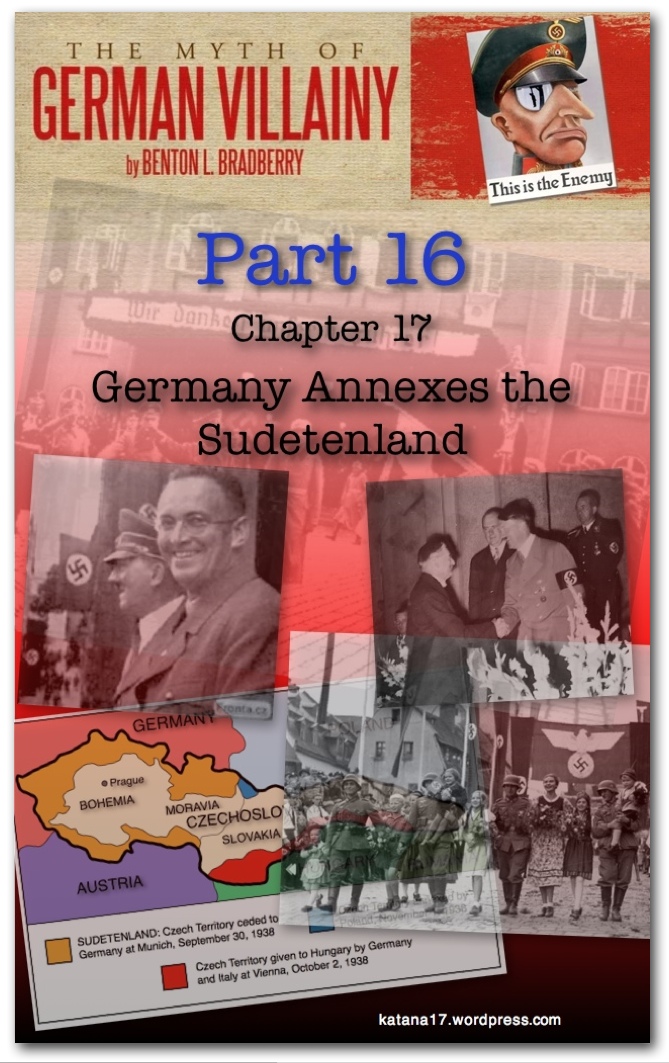
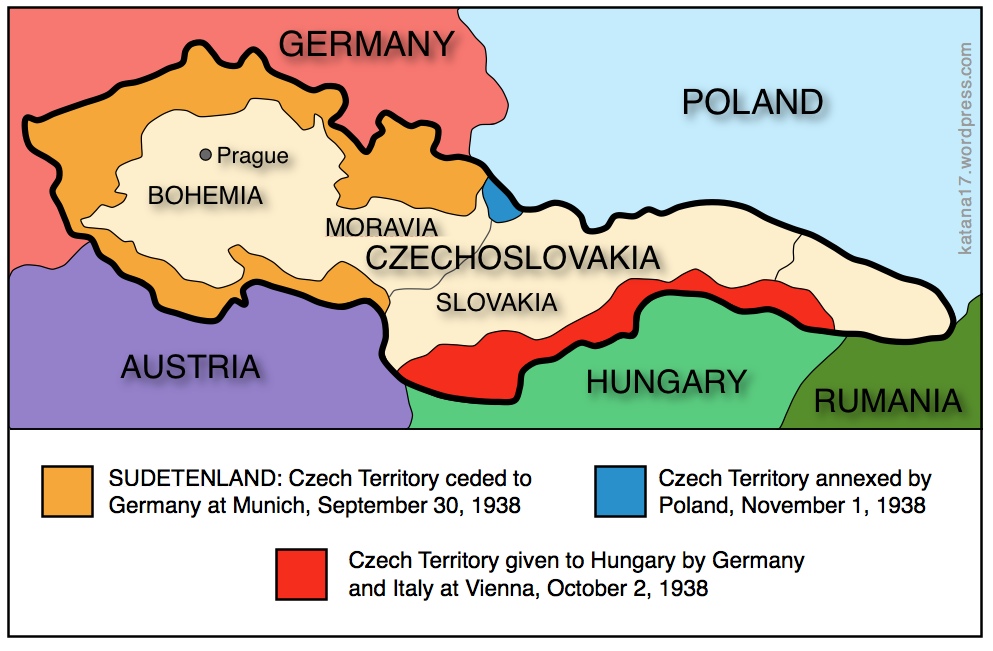

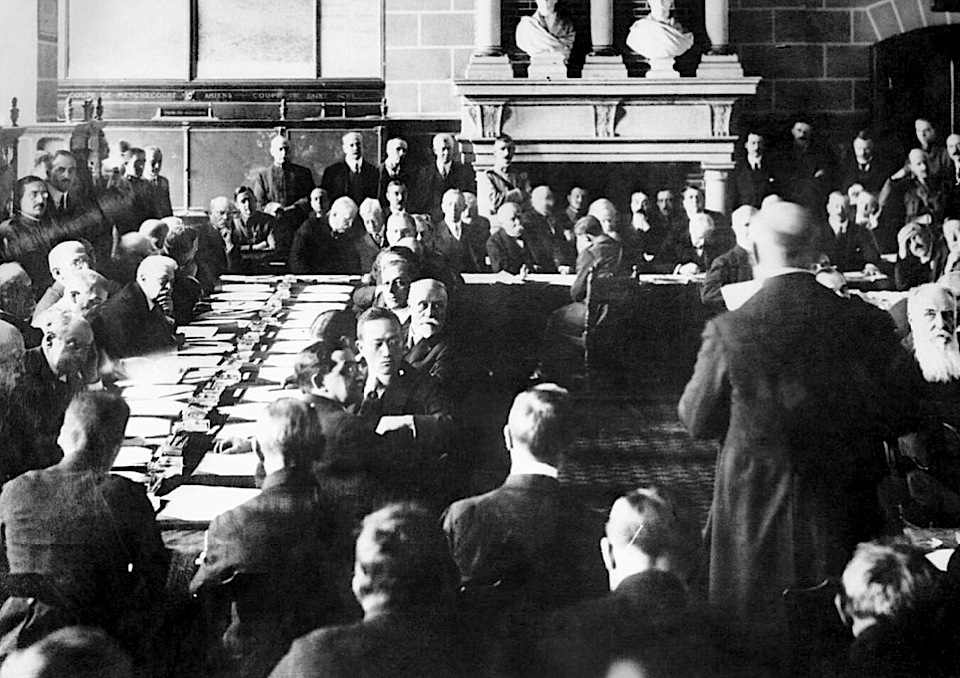
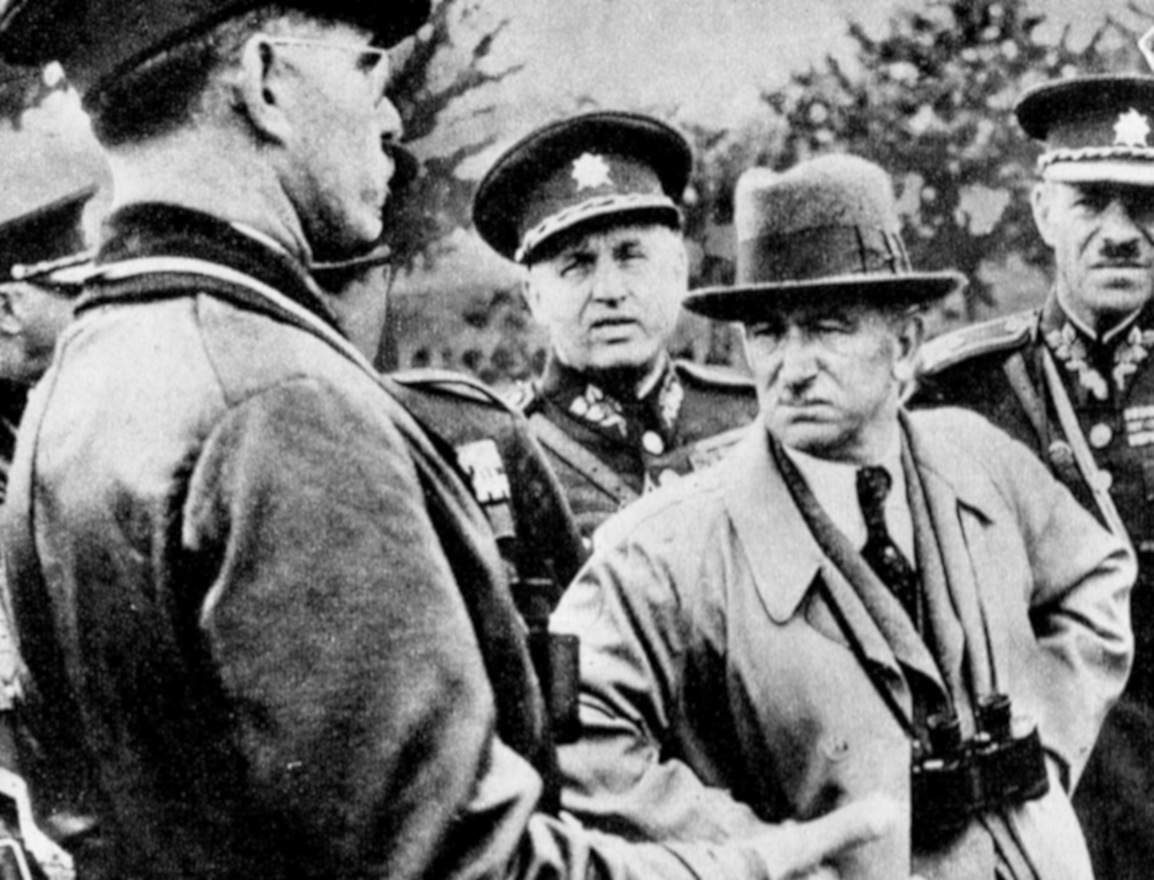
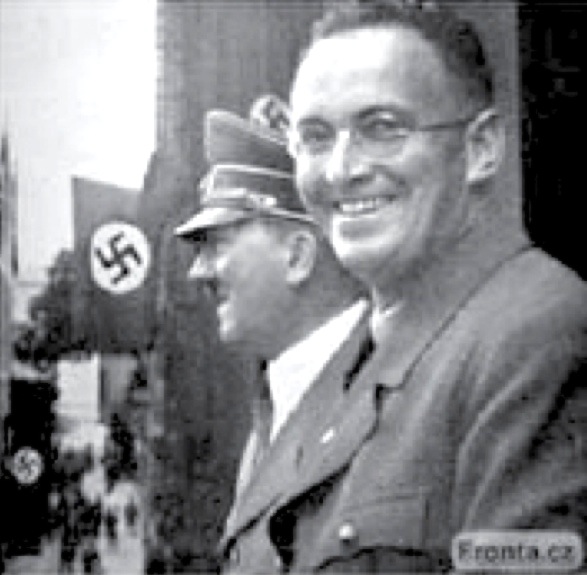
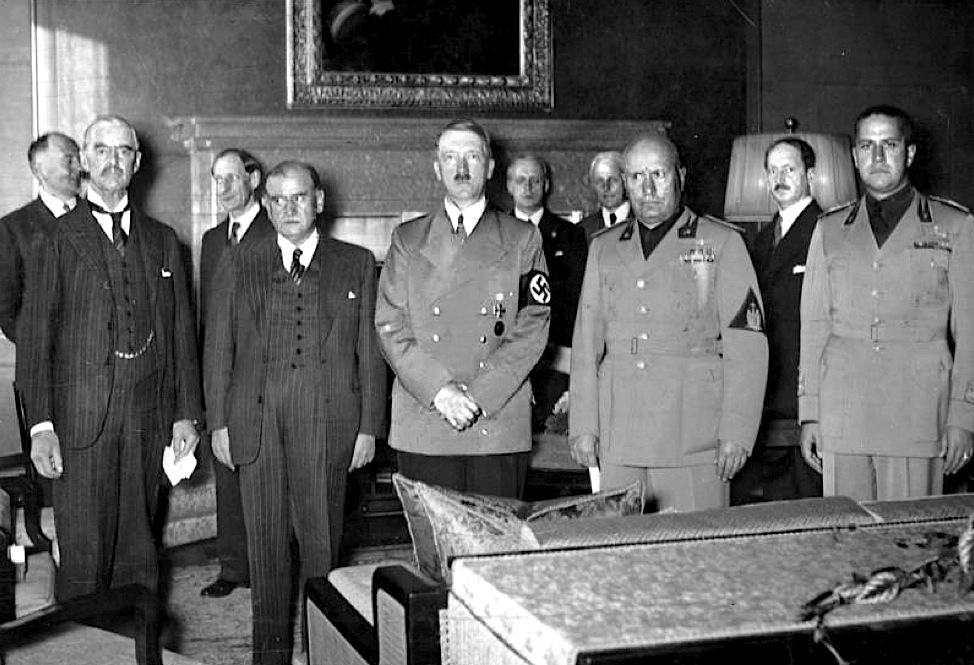
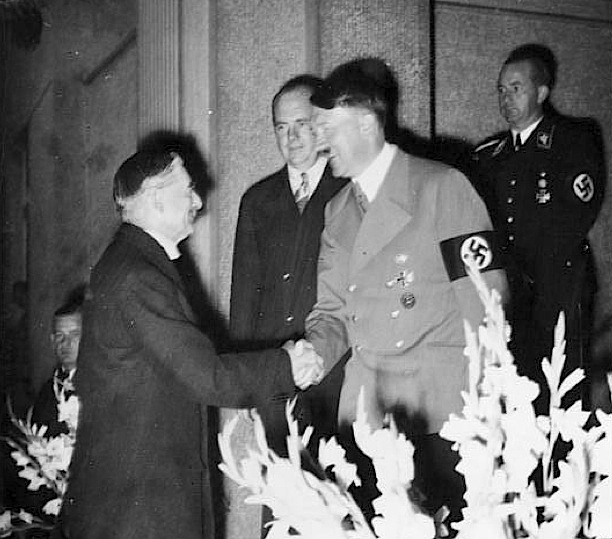

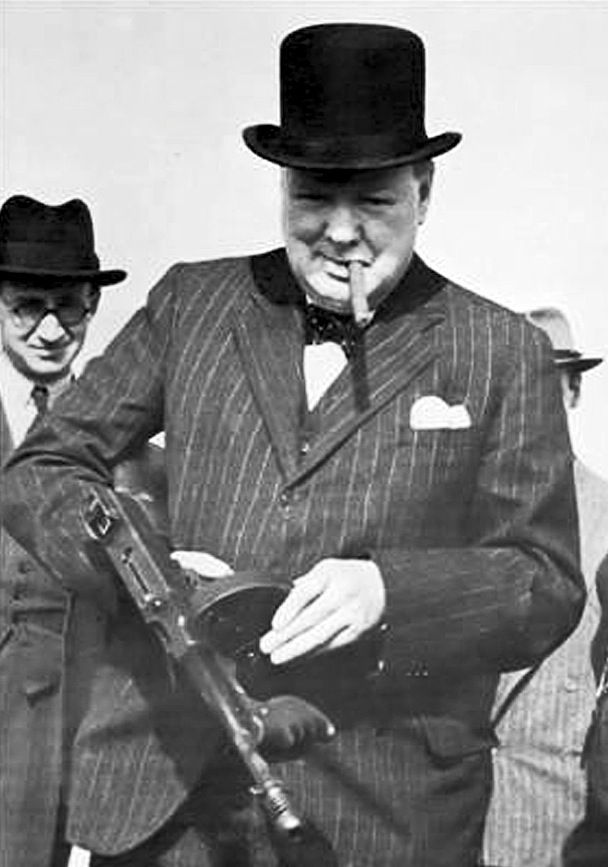
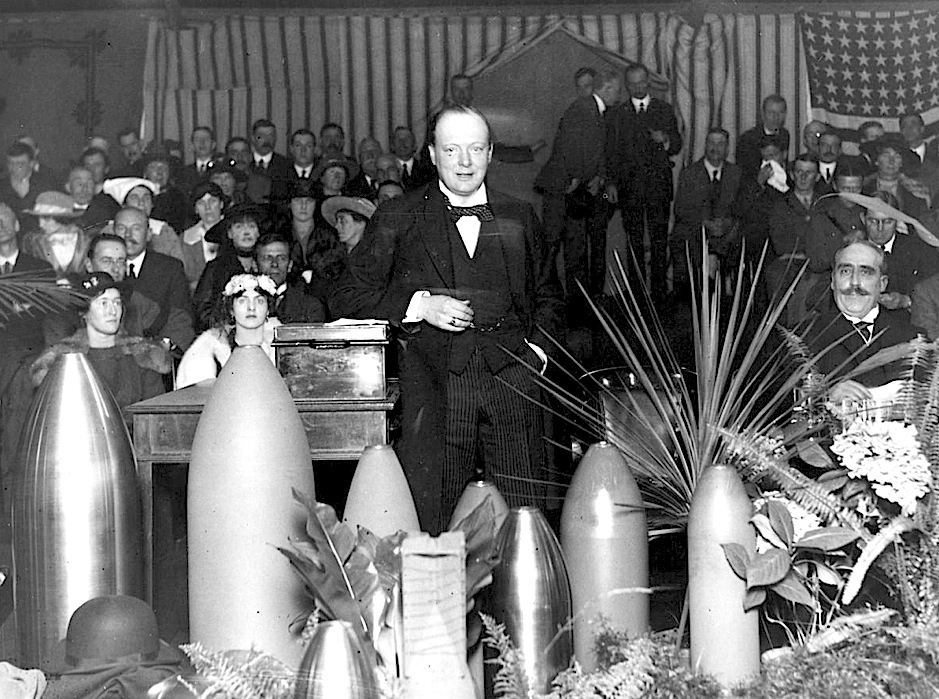
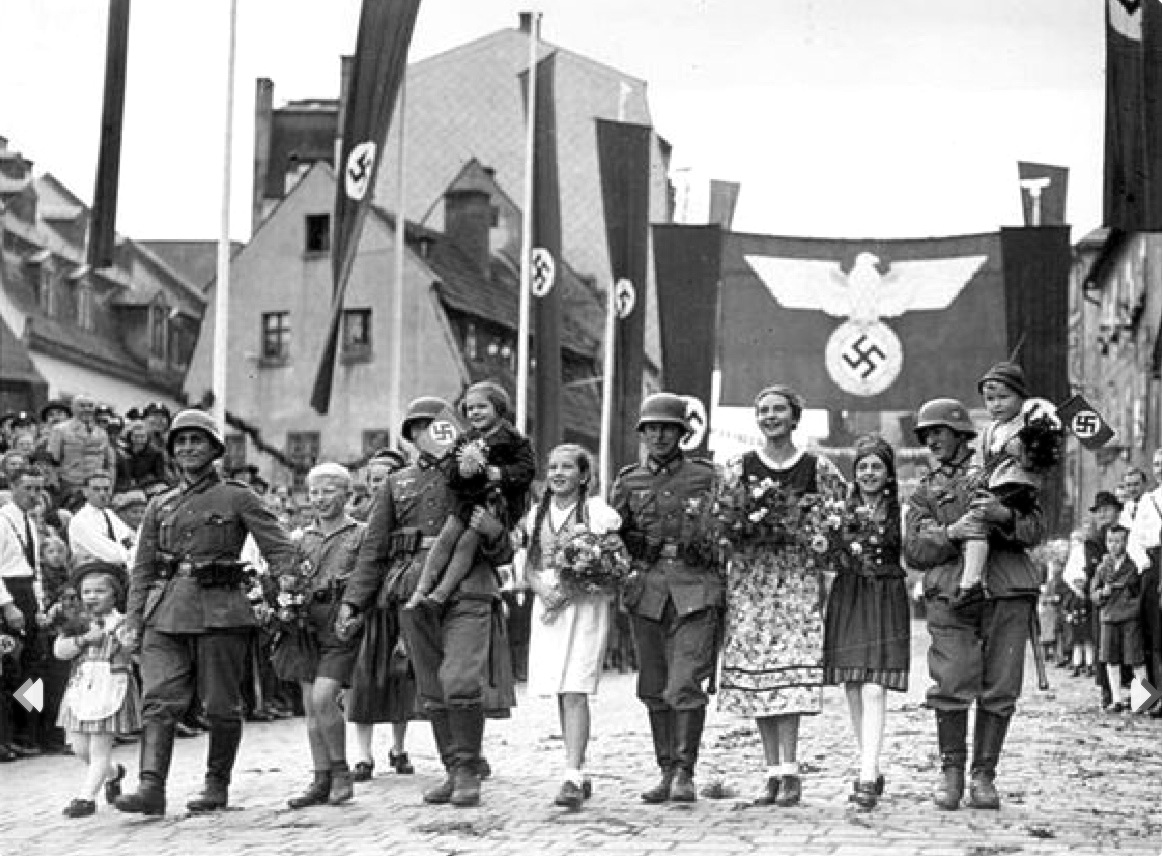
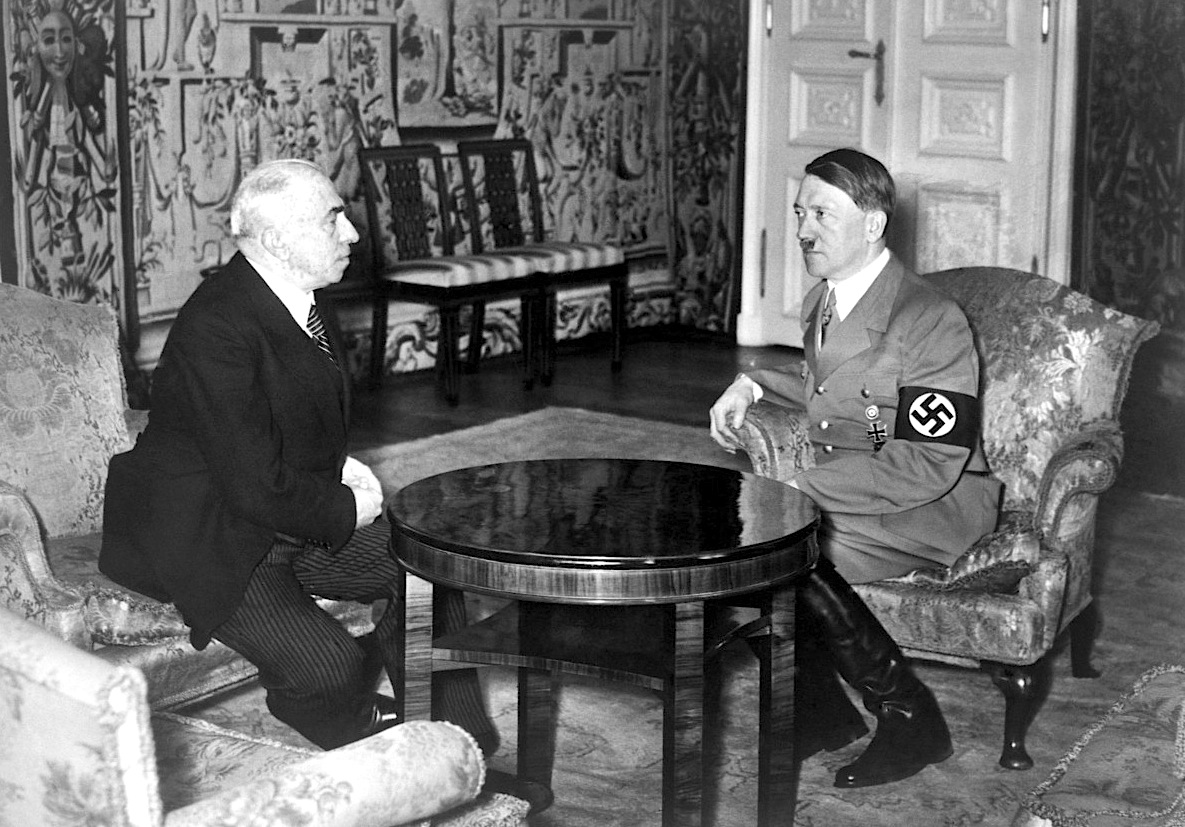
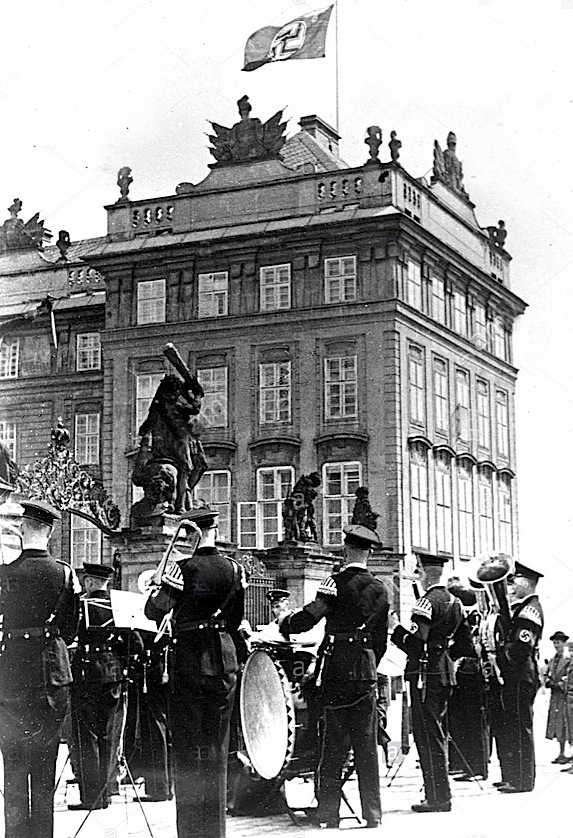
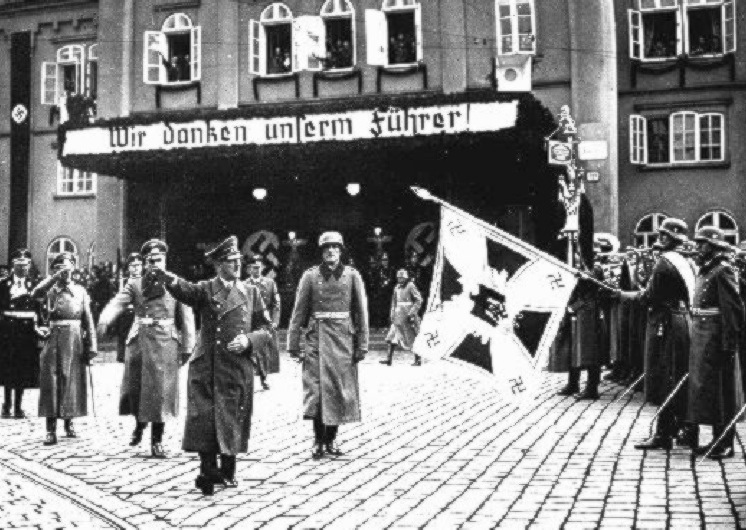
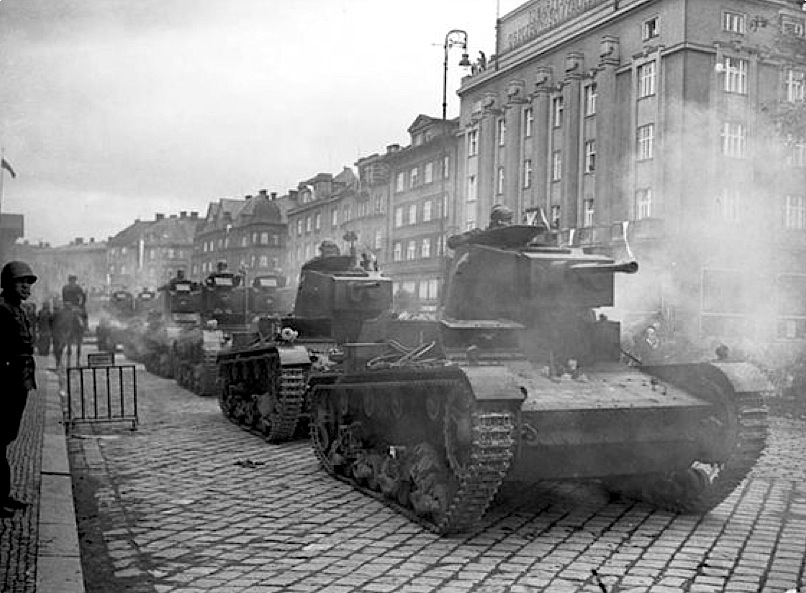


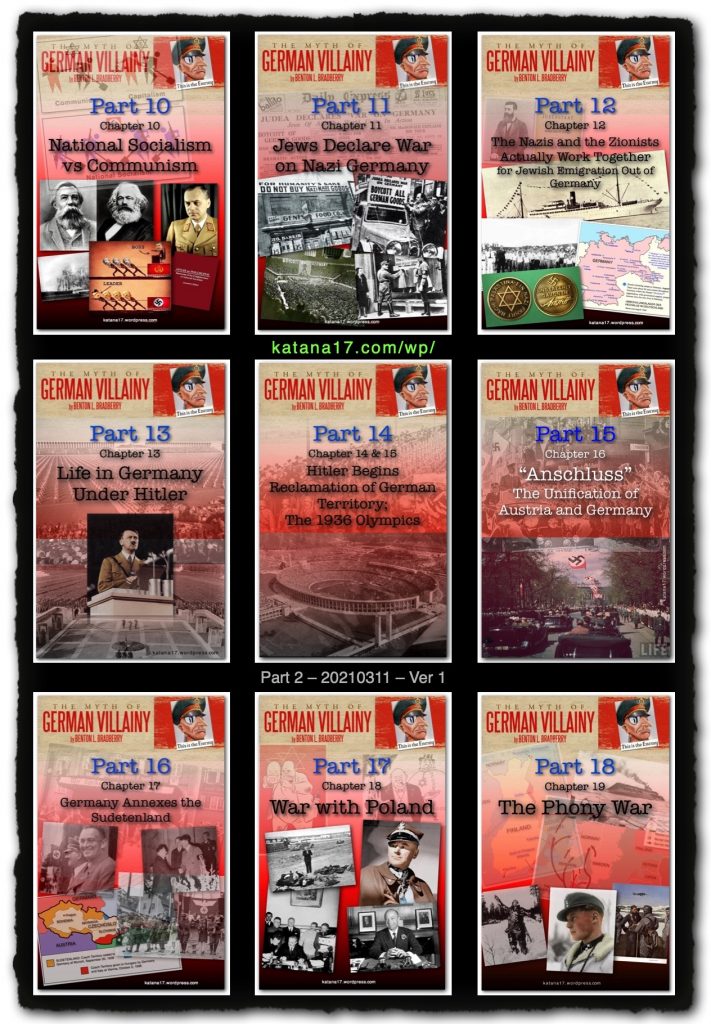

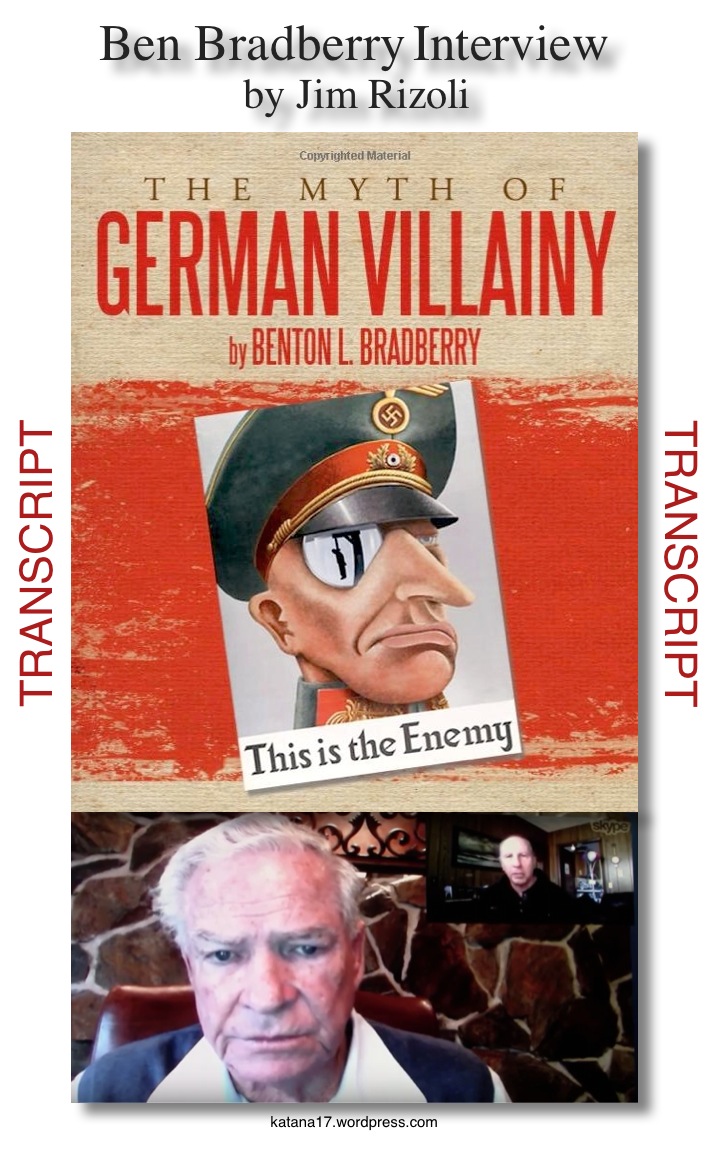
Pingback: Book - The Myth of German Villainy - Part 08 - Jews in Weimar Germany - katana17katana17
Pingback: Book - The Myth of German Villainy - Part 03 - The Jewish Factor in the War - katana17katana17
Pingback: Book - The Myth of German Villainy - Part 21 - Germany as Victim - katana17katana17
Pingback: Book - The Myth of German Villainy by Benton Bradberry - Part 01 - katana17katana17
Pingback: Book - The Myth of German Villainy - Part 02 - Aftermath of the War in Germany - katana17katana17
Pingback: Book - The Myth of German Villainy - Part 15 - “Anschluss” The Unification of Austria and Germany - katana17katana17
Pingback: Book - The Myth of German Villainy - Part 19 - Germany invades France - The Phony War Ends - katana17katana17
Pingback: Book - The Myth of German Villainy - Part 05 - The Red Terror - katana17katana17
Pingback: Book - The Myth of German Villainy - Part 06 - The Bolshevik Revolution Spreads throughout Europe - katana17katana17
Pingback: Book - The Myth of German Villainy - Part 07 - The Nation of Israel - katana17katana17
Pingback: Book – The Myth of German Villainy – Part 22 (last) – Winners and Losers | katana17
Pingback: Book – The Myth of German Villainy – Part 04 – The Russian Revolution of 1917 | katana17
Pingback: Book – The Myth of German Villainy – Part 17 – War with Poland | katana17